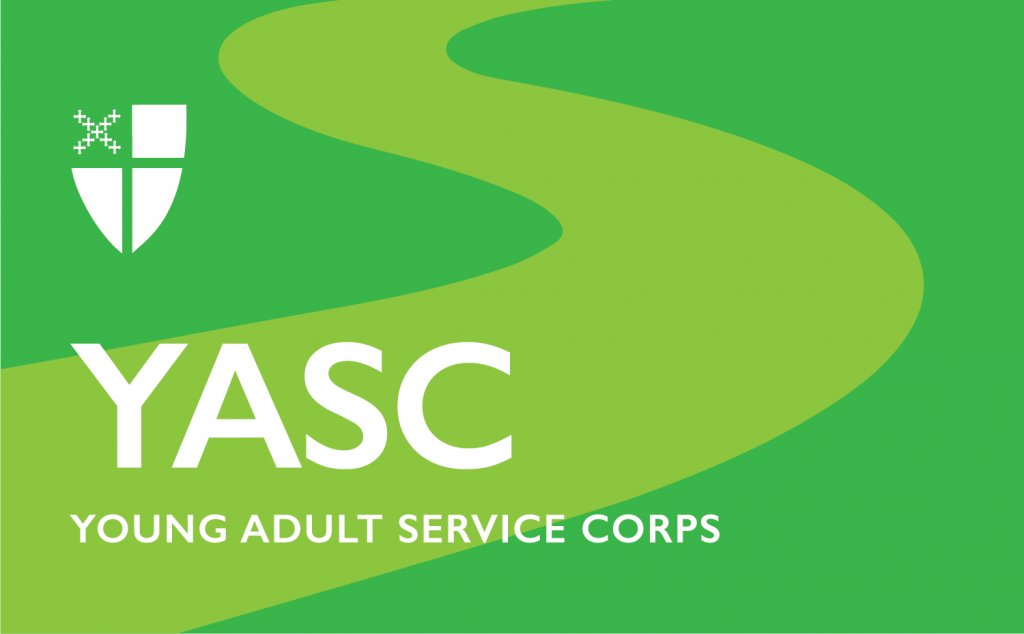Spirit without Borders
Espíritu sin Fronteras, or Spirit without Borders, began with seven women of Amatepec’s Episcopal Church, San Andrés, informally gathered around a kitchen table learning to make candles from a YouTube video. Two years later, they have grown to ten active members of various ages and dispositions, meeting every day from 2 to 5 p.m., Monday through Friday, to share, work on the latest crafts, learn new techniques, and most importantly, to drink coffee. Because, as Rosita explained matter-of-factly, “una reunión sin café no es una reunión” (a meeting without coffee isn’t a meeting).
I first met with the women of Espíritu sin Fronteras with Olivia Amadon, Co-Coordinator of the Global School at Foundation Cristosal, a human rights and community development NGO based here in San Salvador. We went to meet with the cooperative at its store in Amatepec, an urban area on the outskirts of San Salvador, to invite them to participate in an upcoming Global School course on gender equality and women’s empowerment. (The courses are weeklong training and exchange opportunities for North Americans and Salvadorans to come together in El Salvador and engage on specific themes related to human rights).
As I sat in my plastic, wobbly chair listening to Olivia and the cooperative members tell their stories, I remembered how I had first imagined my future life as a Young Adult Service Corps volunteer in El Salvador. I had dreamt of working with women’s groups and empowering the poor… phrases I had stolen from white papers I read as an undergrad, studying development out of a textbook and PowerPoint lectures. Yet it wasn’t until nine months after I began my work with Cristosal that those images became a reality… nine months until I was ready to be in this meeting, truly listening and understanding (in Spanish!) instead of waiting to speak.
Women’s empowerment is one of those catch phrases we hear a lot these days. Cristosal takes a particular point of view, as Olivia explained in the meeting: “There are more ways that women need to empower themselves besides economic. One person cannot empower another. People must empower themselves.” The ten cooperative members vigorously nodded in agreement, and said their biggest obstacle to feeling empowered or confident is timidez (shyness). “We live in a society of men,” Wilma said. There is no precedent to show that women deserve a place in the marketplace, that they have just as much a right as men to sell high-quality goods, to run a store, or to demand a fair and equal wage. None of the women in the cooperative have a fixed job and most lived day-to-day, subsisting on informal, unpredictable incomes.
When I learned about cooperatives and women’s empowerment in Sustainable Development 101, I memorized definitions like “triple bottom line” and “positive externalities.” Yet nothing in those books prepared me for the enthusiasm and pride described in that small room. Despite the apparent cultural and generational differences, each member agrees these daily meetings are the highlight of their week. “Estaba deprimida… I was depressed” Norma said of her years before joining the cooperative. “I was home alone all day and it was really hard to find work. Here, more than anything, we share.” Compartimos, she said. “We share the word of God, we share work, and we share community. This group changed my life.”
When the meeting began, the women showed this same timidez in speaking to Olivia and I, and admitted they were nervous to share this small space with two gringa women. Yet as each woman told her story, the ten cooperative members inched forward in their chairs, their voices got louder, broad smiles matching even broader gesticulations. Roxanna, a young, spunky participant and one of the newest in the group, eagerly told the story of how she first arrived at Espíritu sin Fronteras. “I showed up one day and sat in the corner, watching the women making scarves. I came out of curiosity, and soon someone invited me to learn how to make my own. I was so proud of that first scarf, even though it wasn’t very good, but then I was making hats and jewelry. Now this is my other family.”
When it came time to design the Gobal School course itself, it was clear we needed to focus not only on information exchange and learning, but also on building the women’s experience and confidence as independent entrepreneurs. We had to mesh our goals with theirs, mirroring the cooperative’s objective as a communal space not only to learn new skills in arts and crafts, but also an invitation for each individual to experiment, risk, and share as budding businesswomen. “We don’t come here to earn, we come to learn,” Rosita explained.
After those three hours Olivia and I spent with the cooperative – sitting in a circle watching the conversation bounce around the room like a hyperactive tennis match, sipping coffee from mismatched mugs and cradling warm pan dulce or pastelitos – I remember walking away as if filled with something more than food and drink. It was palpable hope, something often amiss in communities where decades of exclusion, violence, and poverty have the power to squelch it out of even the strongest and most stubborn optimists. It was also a true sense of being useful, of lending my skills as a North American while leaving the space required for others to, as Olivia said, empoderarse (to empower themselves). Norma perhaps said it best: “[This work] makes us happy. We can do something here. We can do anything if we apply ourselves and work hard to make it happen.”
– Hannah Perls is a YASC Volunteer from the Diocese of Olympia. She will be serving a second year in El Salvador with Foundation Cristosal.

